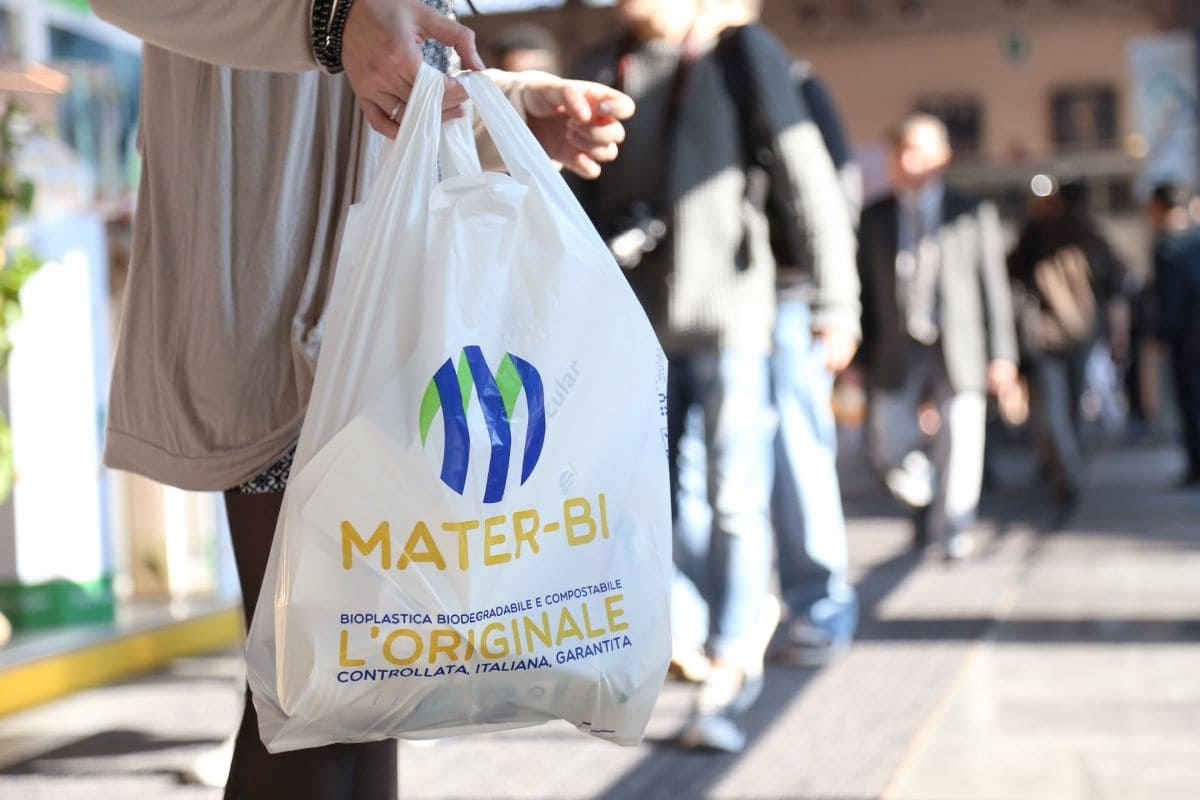This article is also available in Italian / Questo articolo è disponibile anche in italiano
Measurability is the new keyword for companies and Novamont has fully taken it on board. With methodological support from Deloitte Climate&Sustainability, the leading bioplastics company has developed a tool that allows it to calculate the carbon footprint of products made from Mater-Bi, thus enabling businesses and consumers to understand the true environmental impacts of the products they use.
All the data for Mater-Bi
Mater-Bi is a family of compostable and biodegradable materials developed by Novamont that are made primarily from renewable raw materials. These materials are designed to biodegrade, reducing the environmental impact of products and packaging that cannot be recycled and contributing to the development of virtuous systems with considerable benefits throughout the entire production-consumption-disposal cycle.
The new measurement tool created by Novamont will reveal all the process data related to the manufacturing of a single object – the use of Mater-Bi, energy and water consumption, the use of means of transport, waste production, and disposal – and help calculate the carbon footprint of each product, including bags, food packaging, single-use items, or products for agriculture.
“We have developed this tool to help our partners be more competitive and offer numbers obtained through a tool designed in collaboration with a third party, Deloitte, that are verifiable and thus reliable in terms of environmental performance,” explains Novamont Commercial Director Alessandro Ferlito.
Transparency and comparability
This approach does not just provide tangible and verifiable data, but it also offers consumers the opportunity to make informed choices, in line with the increased requirements for transparency set out in the proposed Green Claims Directive and the Corporate Sustainability Reporting Directive.
With the coming into force of the CSRD (Directive 2022/2464), the European Union has made an important step towards transparency and data comparability in relation to sustainability. Businesses will have to integrate ESG aspects in reference to their entire value chain: sustainability accounting must therefore include information on environmental impacts connected to the entire value chain of the company, both upstream and downstream, and then report their emissions in Scope 3 accounting.
Furthermore, Novamont’s tool will also allow companies to align themselves with the anti-greenwashing Green Claims Directive, which is awaiting definitive approval and will establish clear criteria to ensure the information disseminated by companies is reliable and verifiable.
Certiquality’s verification of the tool will complete the project, releasing Novamont’s potential to lead a new paradigm in the world of materials. Mater-Bi products will therefore be a guarantee of certified sustainability and a way for the companies that use them to increase their credibility and transparency.
The calculation of CO2 emissions is proving to be an increasingly decisive criterion in investor decisions and the measurability of a product’s impact is becoming the basis of a company’s reputation and the trust that consumers place in it.
This content is produced thanks to the support of sponsors
Cover: Novamont image



